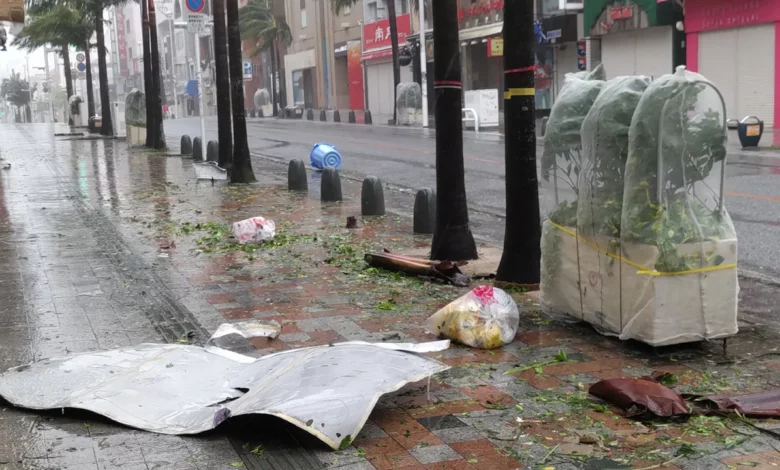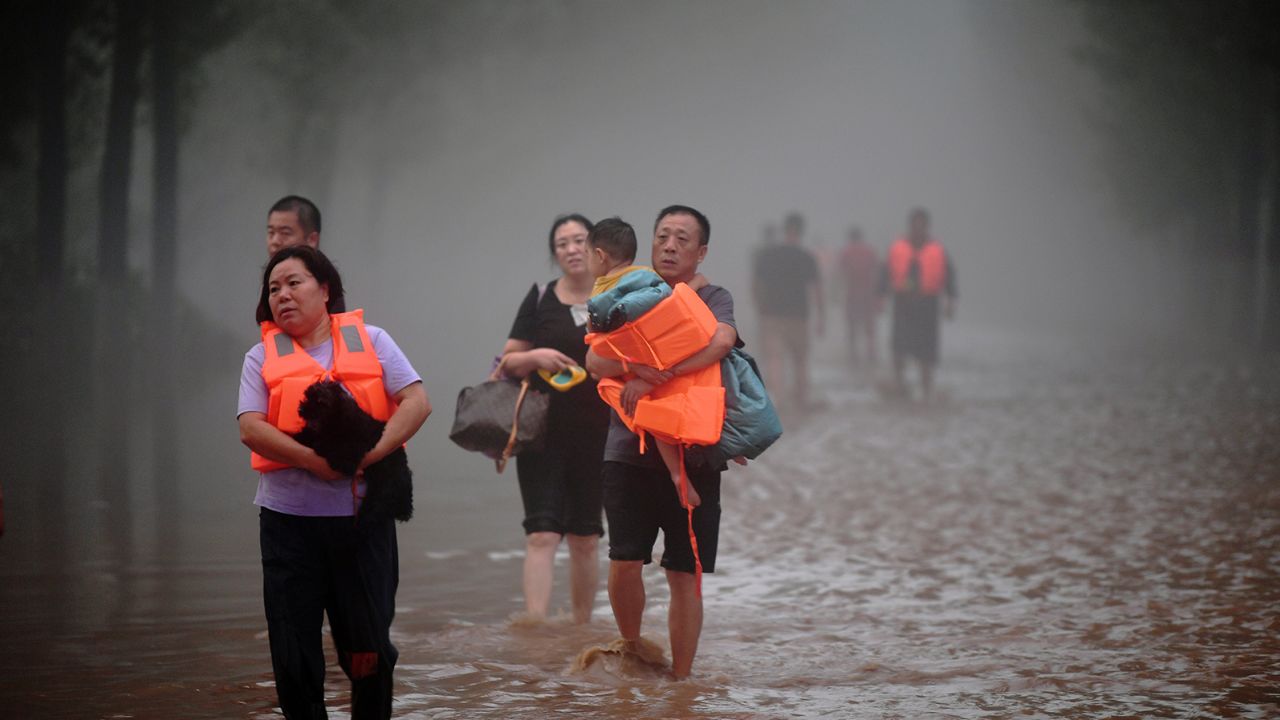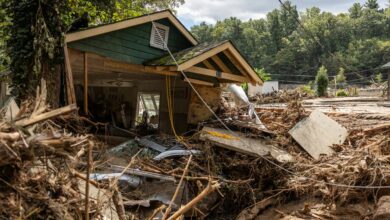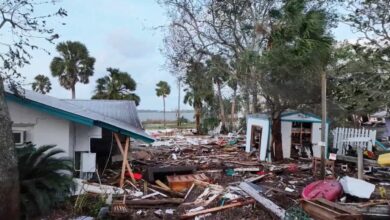
Between Saturday and Wednesday morning, 744.8 millimeters (29 inches) of rain fell in the Chinese capital from the remnants of Typhoon Doksuri, according to the Beijing Meteorological Service – the heaviest rain over consecutive days since records began in 1883.
Meanwhile, Typhoon Khanun packed winds of 220 kilometers per hour (137 mph) – the equivalent of a Category 4 Atlantic hurricane – as it made its nearest pass to Japan’s southwestern Okinawa islands early Wednesday.
In the past 24 hours, many locations in Okinawa have received 175 to 220 millimeters (6 to 8 inches) of rainfall, according to CNN Weather on Wednesday morning.
More than 600,000 residents were ordered by the prefecture government to evacuate their homes, and strong winds took out power lines, leaving more than 200,000 households without electricity on Wednesday morning, according to the Okinawa Electric Power Company.
The center of Khanun is forecast to stall in the East China Sea in the next 48 hours, potentially making a turn toward Japan’s northern Ryukyu Islands over the weekend and avoiding a direct hit to China’s eastern coast, which has been drenched by the remnants of Doksuri.
While the slow-moving Khanun is steadily weakening, its outer bands could potentially bring heavy rainfall and high wind gusts over China’s eastern Zhejiang province and along the coast near Shanghai in the next few days.
Khanun’s impact comes on the heels of Doksuri, which inundated the western outskirts of Beijing with floods that swept away cars and destroyed a bridge.
At least 11 people were killed and 27 others reported missing in Beijing, state broadcaster CCTV reported, while more than 127,000 people were evacuated from the city.
Nine deaths were also reported in Hebei province that surrounds the capital, CCTV said. Rainfall in Hebei shattered records at 10 weather stations, according to state-run news agency Xinhua.

On Tuesday, more than 300 people were stranded in a residential building in Hebei’s Zhuozhou city, state-run outlet The Paper said.
Video showed floodwaters had seeped into the basement of the building, and a woman quoted in the report said residents had “no drinking water, no electricity, no gas.”
More than 133,900 people in Zhuozhou city have been affected by the rainfall, according to CCTV.
Rainfall in Beijing and Hebei was expected to ease on Wednesday, while several northeastern regions including Jilin, Heilongjiang and Inner Mongolia were warned about major downpours, Xinhua reported.
Chinese leader Xi Jinping has demanded thorough search and rescue efforts and told authorities to minimize casualties and restore living conditions to normal as soon as possible, Xinhua reported.
CNN’s Taylor Ward contributed reporting.




